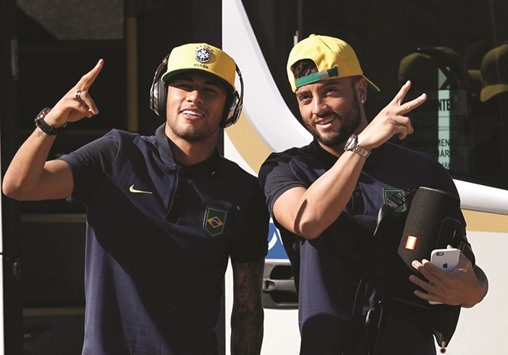They are used to the laid-back vibe, sizzling sun and even Zika-carrying mosquitoes.
South American athletes flocking to the 2016 Olympics feel almost at home here in Rio, and are hoping to harness that familiarity to make a splash at the region’s first games.
“Living these Olympic Games in Latin America motivates me to show the world our culture, a fighting culture that gets up every day to fight for a goal, no matter the difficulties,” said Nicole Acevedo, a biomedical engineering student and member of Colombia’s female rugby team, which has qualified for the first time in its history.
A decade-long commodities boom in Latin America has fuelled the rise of sport stars beyond the soccer pitch, the region’s traditional forte.
Stand-out athletes in Rio include Colombian triple jumper Caterine Ibarguen, Colombian cyclist Nairo Quintana, Venezuelan fencer Ruben Limardo and Cuban wrestler Mijain Lopez.
While differences between Portuguese-speaking Brazil and the rest of largely Spanish-speaking Latin America abound, regional athletes can count on support from fans previously restricted to cheering them on from in front of a TV screen.
“It’s great that it’s close to home because all of our family and friends are coming to watch the Olympic Games,” said Argentine beach volleyball player Georgiana Klug.
With their canary yellow shirts and big grins, the Colombian delegation could almost be mistaken for the Brazilian one.
A rising sports powerhouse, the Andean nation has sent a record of nearly 150 athletes to Rio.
Communist-run Cuba, which has long punched above its weight in sports, is also expected to make waves.
But under the veneer of brotherhood, competition lurks – especially when it comes to football, a regional craze shared from northern Mexico to the icy tip of Patagonia.
Brazil aim for gold
Mighty Brazil are hoping to lift the only major international football trophy to elude them, although neighbours and arch-rivals Argentina will do their utmost to eliminate the ‘selecao’ on their home turf. “It would be beautiful to ruin Brazil’s party,” Argentine men’s soccer coach Julio Olarticoechea said this week.
Still, a spirit of camaraderie is so far prevailing, as exemplified by the Honduran men’s football coach’s account of a chance meeting with his Argentine counterpart in an elevator.
“We have met, we have talked ‘de brincadeira’ (jokingly), as they say in Portuguese, and also about serious things,” said Jorge Luis Pinto.

Brazilians Neymar and Felipe Anderson arrive for training.
